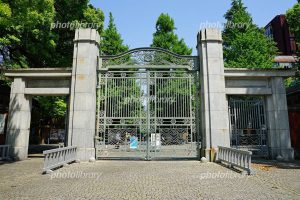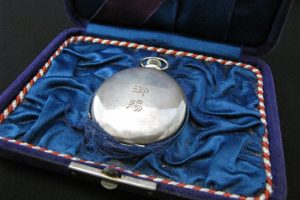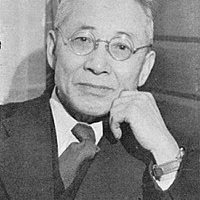One of the catchphrases of the Meiji system is "Fukoku Kyohei". The national authority government governed by the emperor has established the highest school and university as the main task of developing bureaucrats who support the foundation of the emperor system, that is, nationally promising human resources for building a powerful country that "compares to the Western powers" in the education system. Due to financial constraints, the University of Tokyo will be established first. When the Imperial University Order was issued in 1886, there was only one university. The two letters "Tokyo" disappeared and it was called Imperial University. The University of Tokyo was unique for 20 years until the establishment of Kyoto Imperial University in 1897. Since then, it has reigned as an absolute authority in bureaucrat-led Japanese society, being called Tokyo Imperial University and the University of Tokyo after the defeat. The names "University of Tokyo" and "Todai" are surprisingly pervasive in the elites of Asian countries that were once ruled by Japan. It is exactly the core of "unchanging Japan" that connects prewar and postwar days.

【photo】 The University of Tokyo Main Gate
A stab injury occurred on the first day of the Common Test for University Admissions held at the University of Tokyo. It was reported that the second-year high school student who was arrested for the current crime was shouting, "I will receive the University of Tokyo next year" and "I came from a high school with a deviation value of 73. I have the ability." It is said that the fact that the University of Tokyo was judged to be impossible with the current academic ability led to the crime. I am not in a position to analyze criminal psychology in depth, but it is unprecedented if the "prospect of failure" in the second and third semesters is linked to violence. The existence of so-called "University of Tokyo disease" patients who are obsessed with passing "Todai" is probably old with the opening of the University of Tokyo. But no one would have expected it to cause an indiscriminate stab.
■ Faith in the University of Tokyo that overlaps with the emperor system
"The University of Tokyo is not the only one." "People cannot be evaluated based on their scores." Such comments are flooding the net. However, this kind of comfort has no effect on patients with the University of Tokyo disease. This is because it derives from the roots of the Japanese authoritarian society of bureaucratic control, which contrasts with the formation principles of Western-style modern civil society such as freedom, autonomy / independence, and democracy. According to the University of Tokyo's "Study on Student Life Survey Report" 2018, more than 50% of the respondents who asked "Why did you take the University of Tokyo exam?" In other words, most students entered the University of Tokyo because they wanted to get the highest social praise. Therefore, 52.9% of the respondents were particular about "even if they were ronin". This answer tends to be suppressed, and the real intention seems to be higher.

【photo】 the silver clock Given at the graduation ceremony in the presence of the emperor, it was considered the supreme honor
I cannot blame the 18-year-old minor's motivation to take the exam, saying, "I want people to recognize me the best." The core of the problem is that the prewar education system with the University of Tokyo at the top, where the silver clock, which is a reward from the emperor, was awarded to the highest honor student, has not yet been liquidated. The essence of the university-wide joint struggle movement with the major slogan of "the dismantling of the University of Tokyo" that occurred at the end of the 1960s, which will be described later, was the accusation of the feudal constitution and authoritarianism of university people in the 1960s while dragging "prewar = imperial university". .. In that sense, what the student activism of this period asked should be reviewed once again.
Before the war, there was a strict disparity in treatment such as salary and promotion after graduation at Imperial Universities, Government Universities, and private universities, and private contempt was common. After the war, a specific weekly magazine started to make a rush in the ranking bulletin by high school that passed the University of Tokyo, and recently, programs such as "Todaioh" and "Todai VS and other universities" are produced in TV quiz programs, and the University of Tokyo is more than necessary. The mass media's fanning coverage, which is given special attention to the University of Tokyo, is a major detriment.
Reflecting this, the anomaly that "the number of successful applicants at the University of Tokyo" continues to be raised as a trump card for high school PR is only escalating. Now, the fundamental change of society is necessary.
■ What the University of Tokyo nurtures
 Did Japanese university researchers liquidate before the war and live after the war? In 1938, Marx economist Ouchi Hyoe, who was arrested and charged in a group case of a professor of labor and agriculture and was taken a leave of absence from the University of Tokyo during the war, was published by Iwanami Shoten in the March 1969 issue of the Yasuda Auditorium case of the University of Tokyo. Contributed the article "Don't destroy the University of Tokyo". In it, the expression "Even the University of Tokyo Zenkyoto movement must change the structure of the special village of the university" evoked a fierce protest from the Buraku Liberation League and was forced to post an apology. In addition, according to the weekly magazine reports at that time, Ouchi even said, "I want to aim at the MTF members (who helped unblock the Yasuda Auditorium)."
Did Japanese university researchers liquidate before the war and live after the war? In 1938, Marx economist Ouchi Hyoe, who was arrested and charged in a group case of a professor of labor and agriculture and was taken a leave of absence from the University of Tokyo during the war, was published by Iwanami Shoten in the March 1969 issue of the Yasuda Auditorium case of the University of Tokyo. Contributed the article "Don't destroy the University of Tokyo". In it, the expression "Even the University of Tokyo Zenkyoto movement must change the structure of the special village of the university" evoked a fierce protest from the Buraku Liberation League and was forced to post an apology. In addition, according to the weekly magazine reports at that time, Ouchi even said, "I want to aim at the MTF members (who helped unblock the Yasuda Auditorium)." This incident was a symbolic event in which the sense of privilege that had been accumulated inside the University of Tokyo was exposed to the sun. At that time, Prime Minister Eisaku Sato, who visited the Yasuda Auditorium, which had become abandoned after being suppressed, even suggested that the University of Tokyo be closed. Concerns about this should have become the title of Ouchi's dissertation, "The University of Tokyo must not be destroyed." What was the fact that Marxian economics authority was completely indifferent to the word "special Buraku" and that it appealed to the strong intention of "what would make the University of Tokyo crush?" Does it mean? The appearance of "Japanese prewar liberalism" was exposed.
■ The pus of more than 150 years of the Meiji era erupted
There was no movement to dismantle or abolish the organizations of the universities called Imperial Universities in the educational reform of the Allied General Headquarters (GHQ), the leader of the Japanese reform under the occupation after the defeat. Although the two letters "empire" have been taken, they are oblivious to the words democratization and autonomy promotion of university management. Although it is a popular name, the former imperial university still lives as an absolute authority today. In 1968, the unpaid internship system for students of the University of Tokyo School of Medicine and the request for the abolition of the medical office became the source of the "Shiroi Kyoto" dismantling movement, which led to the "Dismantling of the University of Tokyo" and "self-denial". It was suppressed in the first Yasuda Auditorium case. The energy at that time has now disappeared, and there is no shadow to see.
 Michio Nagai, a scholar of education who was the Minister of Education in the Miki Cabinet (1974-76), appeared on TV and said with a crumpled attitude while being proud , "Everyone, I haven't graduated the University of Tokyo." And he appealed to the viewer "the form of the university system is not the Mt. Fuji type, but something like Yatsugatake (where many peaks compete) is suitable" . The speech remains in postwar history.
Michio Nagai, a scholar of education who was the Minister of Education in the Miki Cabinet (1974-76), appeared on TV and said with a crumpled attitude while being proud , "Everyone, I haven't graduated the University of Tokyo." And he appealed to the viewer "the form of the university system is not the Mt. Fuji type, but something like Yatsugatake (where many peaks compete) is suitable" . The speech remains in postwar history.
In this case, there is a feeling that the pus that has accumulated in the social system for 150 years since the Meiji era has spurted out. Nagai's words, which took a head-on view of the university conflict in the 1960s and argued, "What was lacking in Japanese universities and what is the meaning of university reform?" It's still heavy.
T
